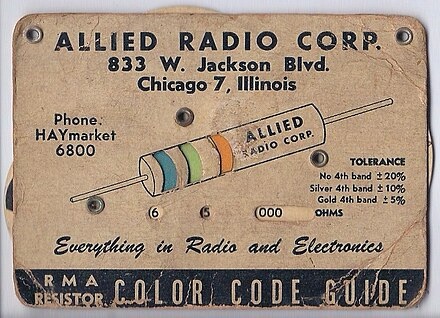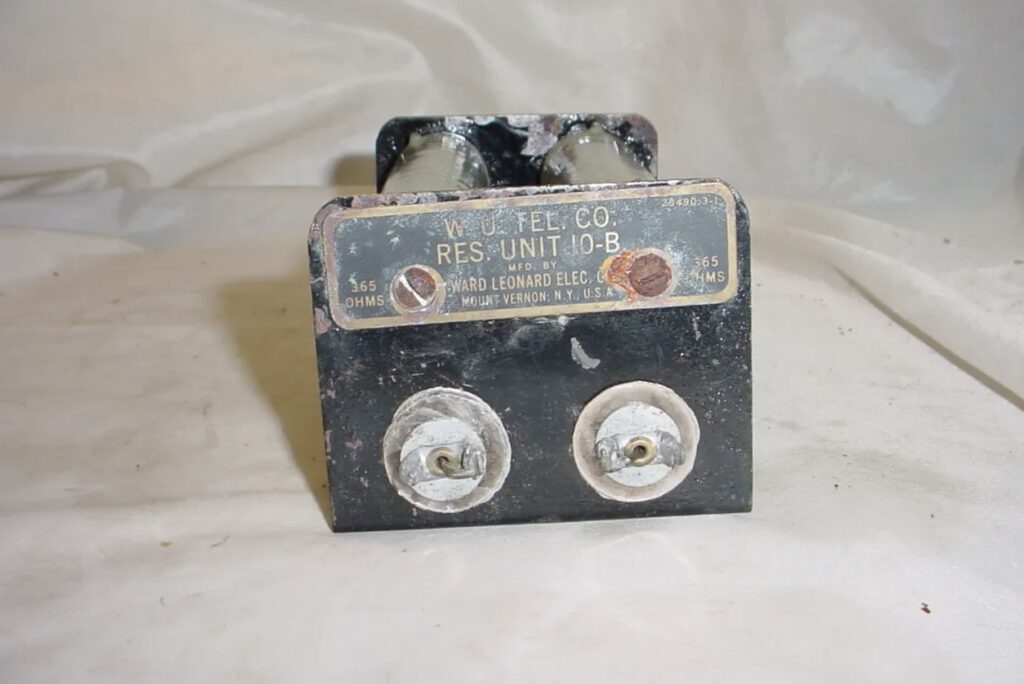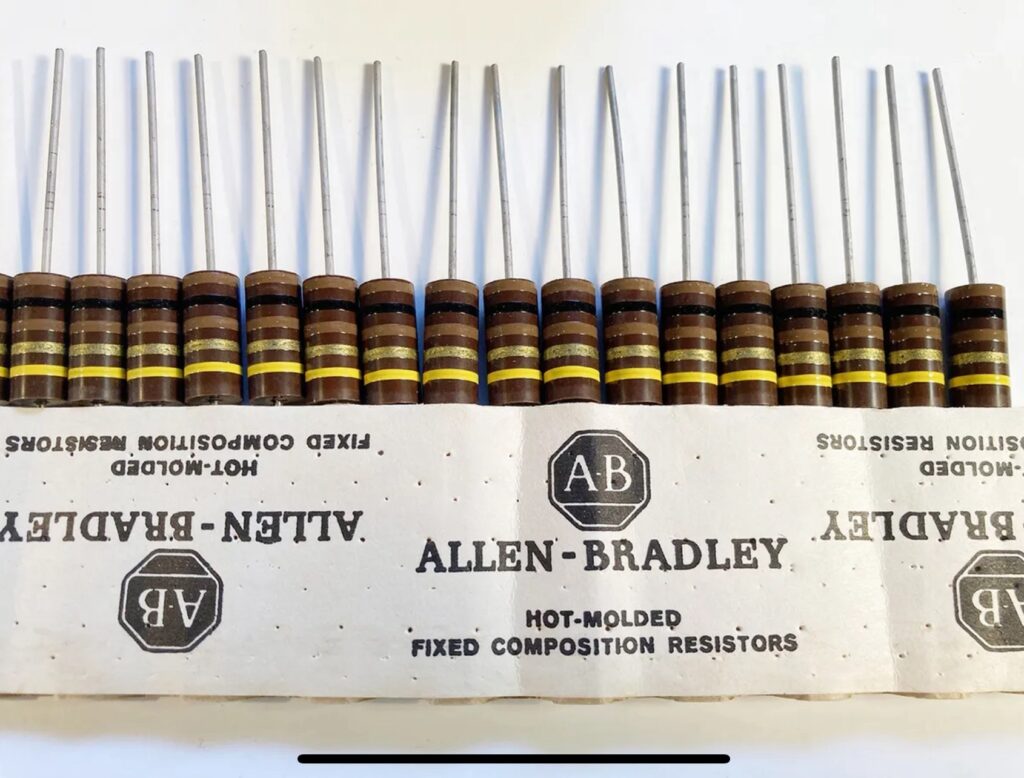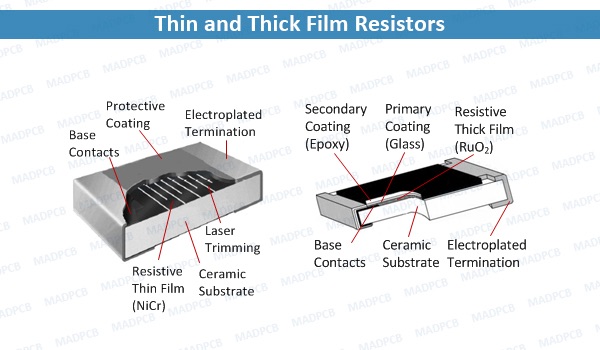
Resistors are fundamental components in electronics, crucial for controlling and managing the flow of electrical current in a circuit. Their history and development are closely tied to the broader evolution of electrical and electronic engineering.

Wheel-based RMA Resistor Color Code guide. Circa 1945–1950
Origins & Early Developments
The concept of resistance was first formalized by Georg Simon Ohm, a German physicist, in 1827. Ohm discovered that the current flowing through a conductor between two points is directly proportional to the voltage across the two points, introducing Ohm’s Law, which is fundamental to electrical engineering.
Initially, resistors were not manufactured as discrete components. Early examples included lengths of high-resistance wires or coils used in telegraphy and early radios. These were often made from materials like nichrome or other alloys chosen for their resistive properties.


Technological Advancements
The development of the first practical resistor for electronic circuits is attributed to the expansion of radio and telecommunications. In the early 20th century, as the electronic industry grew, so did the need for standard, reliable, and easy-to-use resistors. This need led to the development of carbon composition resistors in the 1920s, which were made by mixing carbon granules with a binder and encasing the mixture in an insulating body.

The mid-20th century witnessed significant innovations with the introduction of more precise and stable resistors like carbon film and metal film resistors. These types were made by depositing a thin layer of carbon or metal onto an insulating ceramic rod, significantly improving the performance in terms of reliability and noise reduction.
Modern Resistors
Modern resistors showcase a variety of advanced technical characteristics suited to diverse applications across the electronics industry. Surface-mount technology (SMT) resistors, widely used in digital devices, exemplify miniaturization trends, being small enough to fit on microchips and circuit boards efficiently.

Film resistors, including thin-film and thick-film types, offer superior precision and stability; thin-film resistors have an accuracy up to 0.01% and are favored in high-frequency applications due to their low noise and inductance. On the other hand, thick-film resistors are more economical and commonly found in consumer electronics.
Additionally, modern developments have introduced materials such as metal oxide and conductive polymer, enhancing performance in terms of temperature stability and tolerance to voltage spikes, making these resistors ideal for power supply circuits and automotive electronics.
These innovations reflect the ongoing advancements in resistor technology, emphasizing improved performance, reliability, and adaptability to complex circuits.

Evolution & Study of Resistors
Resistors are a testament to the growth and adaptability of electronic components. From rudimentary, improvised devices to highly specialized and precise components, resistors have played a pivotal role in the development of modern electronics. Their ongoing evolution continues to be driven by the demands for greater miniaturization, efficiency, and cost-effectiveness in electronic circuit design.
This article provides a broad overview, and those interested in a more detailed study or a career in electrical may want to look into specific types of resistors, their material compositions, and applications across different electronic devices.

